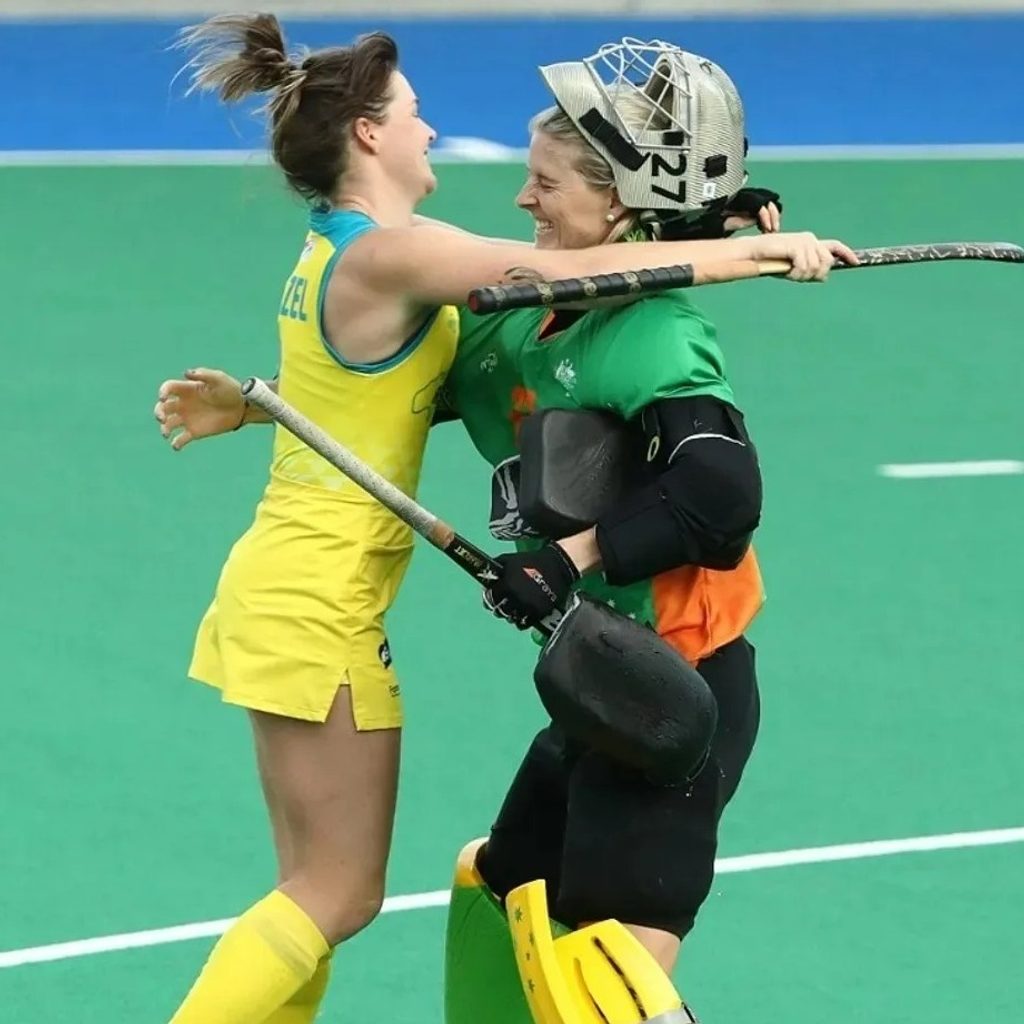
As we celebrate World Health Day, it is worth remembering that health is about much more than physical wellness. Mental well-being is also key to our health and, at a time when a global pandemic, environmental pressures and traumatic political issues are crashing into our psyche on a daily basis, it is crucial that we look after our minds as well as our bodies.
The impact of physical activity, such as playing a game of hockey, is one way to help improve our mental health. Immersing ourselves in a physical event and concentrating on skills, techniques and tactics is one way to clear the mind of toxic thoughts. But, equally important is the social aspect of the game.
To talk about the importance of the social side of hockey, we called on two of the game's best known goalkeepers, Australian legend Rachael Lynch and Ireland’s superstar ‘keeper Ayeisha McFerran.
FIH: How important was club hockey to you as a junior player?
Rachael joined her local club when she was just 12 and she says, it became an instant community. Despite playing at other clubs as part of her own development, it is to her original club that she returns both to play and to act as a club ambassador.
‘I’ve remained at the same club 24 years and the support of that community has been a huge factor and had a big impact. The club has become like a huge family to me. They are the first to post anything I have done on Facebook and they keep an eye on you to make sure you’re alright.
‘When I am at home, I always go and support them because I just want to give back.’
For Ayeisha, three years at Kampong has given her insight into the strength of the Dutch hockey club structure.
‘In Holland, they put the social aspect of hockey on the same level as playing. Every Sunday, it is insane, there are thousands of people watching. People stay after their own games and support everyone else. I have built up a network there. You can go to the club by yourself and have a great time. It is a real family environment.’
‘The club environment is really special, adds Rachael. ‘Perhaps it is being part of a team sport, you have instant friends and relationships and it is such a positive environment in your life. It is also very grounding. It is place where I went to just be ‘me’.’
FIH: How important are those social relationships when it comes to dealing with the pressures of being an elite athlete?
‘Hockey becomes like a workplace,’ says Rachael. ‘You spend more time with your team than you do you family. In some ways you have superficial friendships which are circumstantial. It is the national team at the time but guaranteed along the way you will forge deep rooted friendships because of things you have shared and experiences you have gone through together. You get to know more about your team mates than you do your other friends and often your family. They see every emotion. Sharing big games as a group is an experience that you don’t share with other friends. It is a feeling that is hard to recreate in any other area of life.’
That feeling is etched in Ayeisha’s memories of the Women’s World Cup London 2018 where Ireland won a historic silver medal. ‘The girls in that team, we are just so connected from that moment and that journey. I know more about them than I do most of my family. It is something very special that you can’t explain to anyone else, so you rely on those team-mates who were there and understand how you are feeling. You need to invest time in each other to really get to that point.’
‘I remember that tournament and it was from afar but we found ourselves cheering Ireland because we could see and feel the connection the Ireland team had within their side. When you see a team playing together and having fun like that, it is palpable.’

FIH: Are you friends with teams from other nations?
‘There are only a handful of people in the world who play elite hockey and so understand what pressures you face,’ says Ayeisha. ‘But once you step off the pitch, everyone is a normal person and it is nice to connect and share that together. In the goalie world, we are all connected. If I go back to USA or Netherlands, I will always pop in and see players from that team because we know each other well.’
‘It wasn’t until I had some struggle pre-Olympics and when retiring that I had goalie’s reach out and send me messages. Like, for instance, I have always had a strong rivalry with Maddie Hinch (GBR) and there has always been respect but there have been times when I have reached out to her and she has reached out to me, and you know that there is mutual understanding and another wonderful thing to have come from hockey.’

























